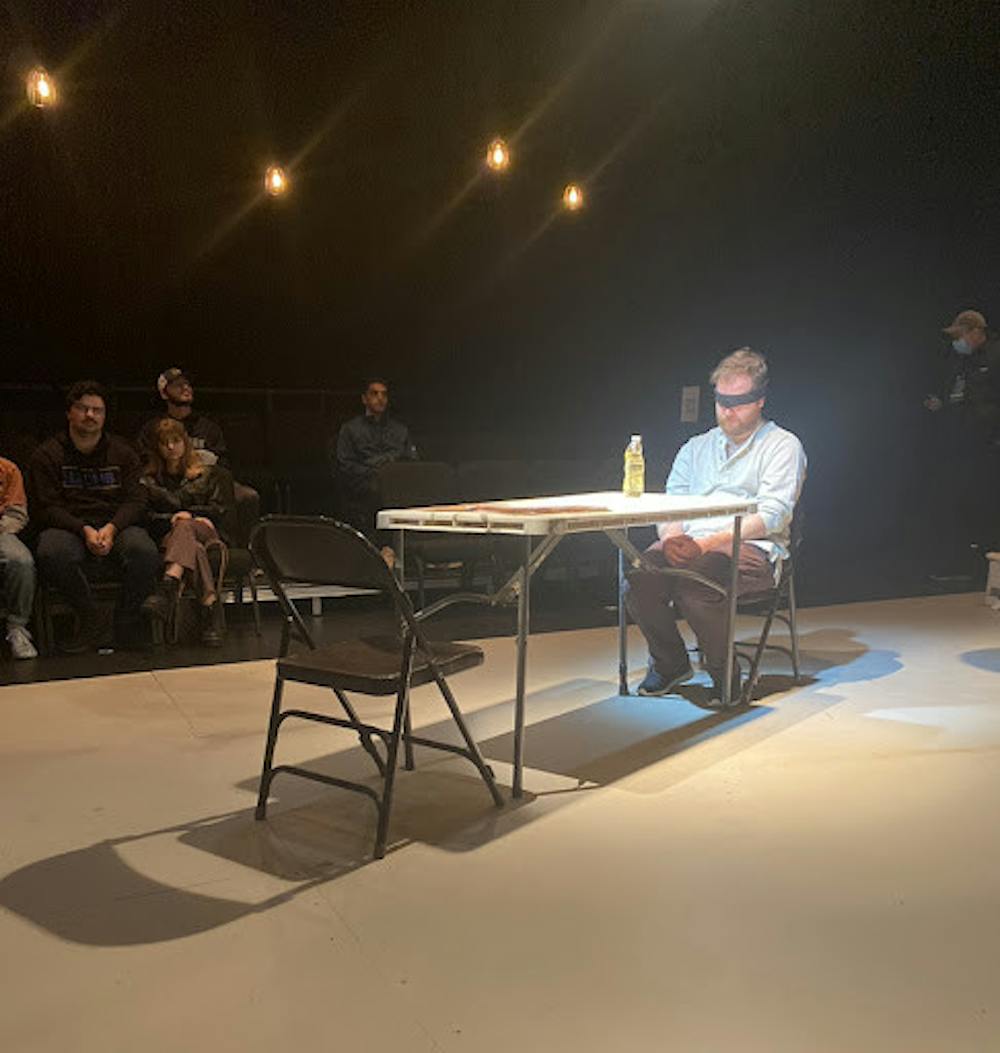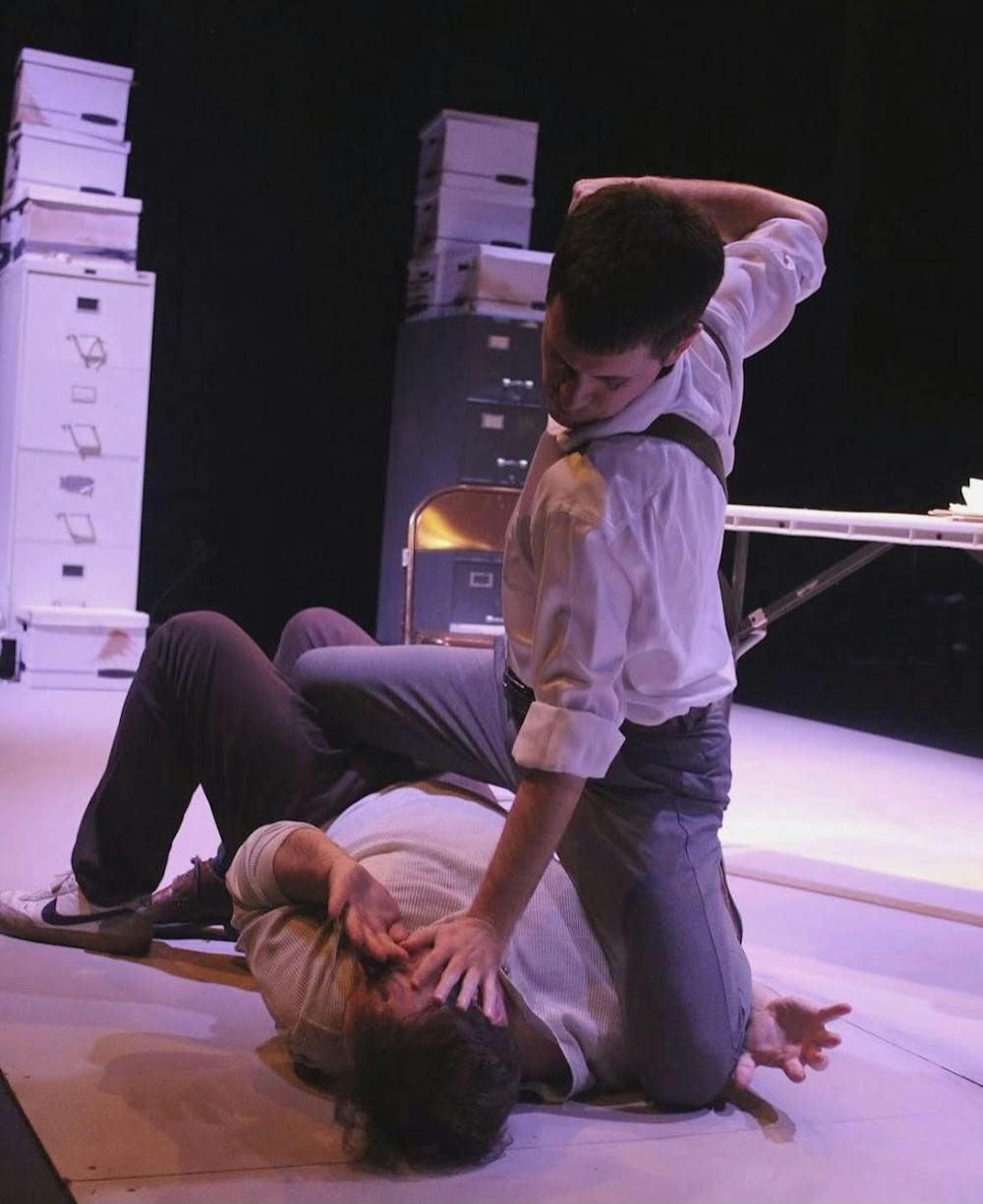By Alyssa Serrano
Correspondent
Shakespeare 70 (S70) put on a chilling and emotional performance of the “Pillowman” in the Kendall Hall black box theatre from Oct. 19-23.
The play, written by Martin McDonagh, had a very intimate feeling and audience members reacted strongly to events in the show because the audience surrounded the cast on two sides. In staging the show this way, if made the audience an involved member of the performance, every reaction from both characters and audience members added to the play.
When discussing the play, a student from somewhere in the audience called out, “I’m glad I have therapy tomorrow — shout-out to counseling and prevention services.”
The play centers around the main character, Katurian, a writer who has been arrested for a series of child murders in his area. All of the murders have one thing in common: they bare a striking resemblance to the deaths of characters in his stories.
When talking about the play, Director Kayla McLaughlin said, “I love that the audience isn’t really sure how to react and it makes you question a lot of things.”
This was certainly true for the audience at their 8 p.m. performance on Oct. 20.
Waves of gasps and giggles were heard from both the students and adults in the audience as new aspects of the characters' personalities were revealed.
Freshman sociology major Inbar Strauss Kirshner described the acting as “phenomenal.”
“I specifically enjoyed how you could hear the personality of the character and how you could immediately tell their personality and such from their voice,” Kirshner said.
Officers Tupolski and Ariel were clear examples of this, performing a good-cop-bad-cop routine. However, as the play continues, the inflection of their voices throughout the show conveys that the characters are not as black and white as they may seem at first glance.
“I liked when the parents were portrayed by the two police officers,” said freshman political science major Isabelle Haney.

(Photo courtesy of Alyssa Serrano / Correspondent)
The entire show was acted out by four actors, meaning the actors all played multiple characters (besides Jake Burbage, who played Katurian). Subtle changes to the actors' wardrobes and mannerisms revealed when an actor had switched characters. This required every move made by the four actors to be much more purposeful.
For example, actor Jim Bloss acted more loose and friendly in order to portray Tupolski as the “good” cop for most of the play. However, when he was playing the role of the father, he became very stern and outwardly aggressive. These little details indicated that actors were playing different roles without requiring the actor to do a full costume change when they were needed for the next scene as well.
“I was scared,” said Haney while describing her thoughts on the play. “I thought it was going to be horror, but coming out it was more plot than I thought it would be.”
While the play was not considered horror, it had several moments where the audience was jumping with the characters. This made it feel as though the audience members themselves were an active part of the show and allowed them to better sympathize with the characters.
When asked about what she wanted to really showcase with this performance, McLaughlin said, “I really wanted to emphasize the power of story and to really bring the focus in and focus on the impact of story on both Michael and the audience.”
With this goal in mind, the show was absolutely successful.
“I really like the emotions it’s making me feel,” Kirshner said. “I wasn’t expecting it to be such a powerful performance or so professional and thought provoking in the first few minutes.”







